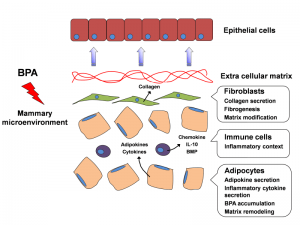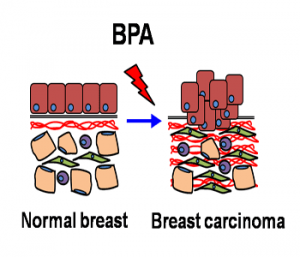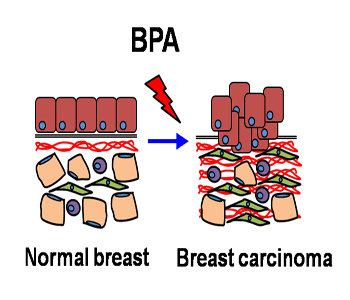
Bisphenol A is a commonly used chemical in numerous commercial products. While the high-dose exposure has been thoroughly investigated, the effect of low-dose exposure to bisphenol A on
carcinogenesis of breast cancer is now summarized in a new Review in Advanced Science.
Breast cancer is the fifth most common cause of cancer death in the world and the second most common fatal cancer in women. Since hormones play important roles in the initiation and progression of breast cancer, the chemical bisphenol A (BPA) has been a concern in the development of breast cancer over the years. Especially, because its chemical structure is similar to synthetic estrogens.
 Nevertheless, BPA is one of the most commonly used chemicals and is widely present in many food-related commercial products, such as storage containers, food-contact papers and cardboards, metal food cans, and baby bottles. It is also used in dental materials, medical devices, and personal care products. In addition, BPA can be released from consumer products and deposited in the environment, thus creating potential for human exposure through oral, respiratory, and dermal routes.
Nevertheless, BPA is one of the most commonly used chemicals and is widely present in many food-related commercial products, such as storage containers, food-contact papers and cardboards, metal food cans, and baby bottles. It is also used in dental materials, medical devices, and personal care products. In addition, BPA can be released from consumer products and deposited in the environment, thus creating potential for human exposure through oral, respiratory, and dermal routes.
However, most studies have focused on the carcinogenic effects of BPA at high doses. Whereas the current Review by Zhe Wang, Huiyu Liu, and Sijin Liu focuses on the role of low-dose BPA on breast cancer initiation and development. More understanding of the carcinogenesis of BPA at low concentrations will be helpful to elucidate the health effects of BPA under environmental relevant conditions.

















